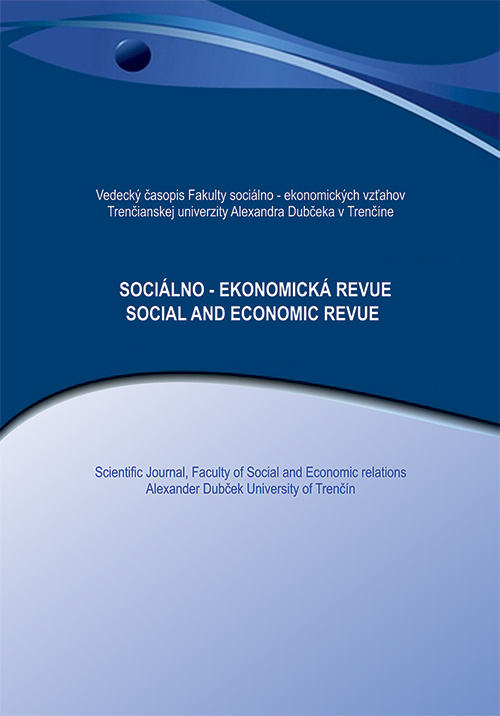PSYCHOLOGICAL FREEDOM TO FEAR WHEN DEFENDING A THESIS IN PORT TECHNOLOGY MANAGEMENT
There are situations when employees of port companies studying at the maritime academy write good-quality theses but, as undergraduates, they are too afraid and worried when preparing and defending their theses. Therefore, the persons involved in the preparation of the thesis usually advise the undergraduates using clichés “don’t worry”, “don’t stress”, etc. The advice mentioned is a disservice because they do not explain how not to be worried and not to be stressed. At that time, the persons involved give additional fear to the undergraduates who may be afraid of their natural fear – the fear of defending the thesis. Therefore, their fear multiplies. The support system should be the main academic key to the success of undergraduates. It is important to give them the freedom to be, live and naturally fear, if necessary, because it allows the person to meaningfully experience his/her individual authenticity, wholeness and integrity from the anthropological point of view. This experience can reduce his/her fear.
Vydanie: 2020/1 Strany: 53-60 Klasifikácia JEL: H00, H53, E26
DOI:
Kľúčové slová: Undergraduates, theses, fear, freedom, seaport
Sekcia:
Kontakty:
assoc. prof. Saulius Lileikis, PhD
Port Economics and Management department
Lithuanian Maritime Academy,
I. Kanto str. 7, Klaipėda, LT-92123,
Lithuania,
e-mail: s.lileikis@lajm.lt
Literatúra:
Alloy, L. B., Abramson, L. Y. (1979). Judgment of contingency in depressed and nondepressed students: sadder but wiser? Journal of Experimental Psychology, 108, 441–485.
Becker, G. (1999). The Gift of Fear and Other Survival Signals that Protect Us from Violence. New York: Dell. 432 p.
Chomsky, N. (2002). Media Control: The Spectacular Achievements of Propaganda. New York: Seven Stories Press. 112 p.
Clarkson, M. (2005). Kaip įveikti baimes. Vilnius: Alma littera. 256 p.
Ghaemi, N. (2014). Nuo beprotystės iki lyderystės. Vilnius: Sofoklis. 336 p.
Hubbard, E. (1999). Elberts Hubbard’s Scrap Book. New York: Firebird Press. 240 p.
Jeffers, S. (2018). Feel the Fear and Do It Anyway: Dynamic Techniques for Turning Fear, Indecision and Anger into Power, Action and Love. Illinois: Nightingale-Conant. 246 p.
Jonutytė, I. (2007). Jūrininkų psichologinių ir socialinių darbo sąlygų ir sveikatos sutrikimų sąsajos. Kaunas: Kauno medicinos universitetas. 70 p.
Kahn, A. P., Doctor, R. M. (2000). Facing Fears: The Sourcebook for Phobias, Fears, and Anxieties. New York: Checkmark. 310 p.
Lileikis, S. (2018). Jūrų lyderystė: vertybės, psichologija, saviugda. Klaipėda: LAJM. 249 p.
Malinauskienė, V., Jonutytė, I. (2008). Bullying in the workplace and musculoskeletal disorders of the upper limb among seafarers. Epidemiology, 19 (6), 96.
Marks, I. M. (1987). Fears, Phobias, and Rituals: Panic, Anxiety, and their Disorders. New York: Oxford University Press. 704 p.
Paulauskas, S. (1999). Savivaldos dialektika. Klaipėda: KU leidykla. 251 p.
Petronienė, G. (2018). Laimės svarstyklės: pasverk savąjį Aš. Vilnius: Alma littera. 365 p.
Sacks, J. (2000). Celebrating Life: Finding Happiness in Unexpected Places. Glasgow: Harpercollins Pub Ltd. 208 p.
Saul, H. (2001). Phobias: Fighting the Fear. New York: Arcade Pub. 368 p.
Weisinger, H. (2000). The Power of Positive Criticism. New York: Amacom. 200 p.
Лебедев, В. И. (2001). Экстремальная психология. Психическая деятельность в технических и экологически замкнутых системах. Москва: Юнити-дана. 431 p.


